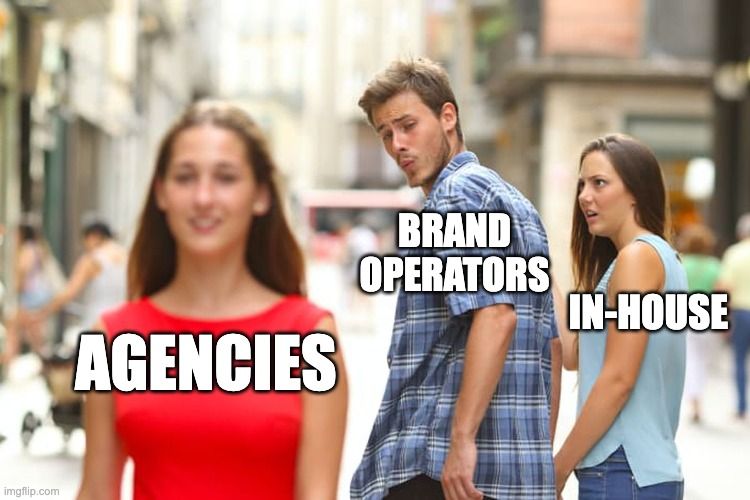I should warn you before reading this post, that this is a direct response to Rand Fishkin's latest post on Sparktoro, What if Performance Advertising is Just an Analytics Scam?
If you haven't read that article yet, please go read that first, before returning for my thoughts.
Done? Great, let's hop in.
Why I am Thankful For Rand
First, I have a lot of respect for Rand. Not only have I enjoyed his take on things throughout the years, but I especially enjoyed his honesty in Lost & Founder. We appear to share a lot of the same opinions around business ethics and growth based on his Twitter stream, and I respect anyone who wants to not simply grow a business at any cost, but who wants to do so in a manner they consider ethical and productive to those around them.
We need more business-people like Rand in the world.
Second, I completely agree with Rand's overall premise. I see Rand's primary concern in this article, as not wanting to waste money unnecessarily and being willing to invest in less-obvious, creative methods that will actually build your brand. 100% agree, on both of those accounts. What business owner wants to spend money they didn't need to spend? The idea of seeking incrementality (though, admittedly, difficult to truly ascertain) in advertising and not simply taking ad platform propagandized assumptions at face value is one I can stand behind and applaud.
That being said, while I agree with his overall premise, I had these two core concerns from his article that I would like to discuss in the remainder of this article:
- Rand seemed to conflate remarketing with performance advertising as a whole
- Rand didn't allow for incrementality in purchase intention on the consumer buying journey
I'll explain each of these next, and then wrap it up.
Concern #1: Rand seemed to conflate remarketing with performance advertising as a whole
I noticed a concerning trend throughout the article that I think weakens the overall premise.
That is, Rand often noted concern about advertising that retargets the same individual when speaking of incrementality. This type of advertising is called "remarketing" by Google, ("retargeting" by the rest of the world, thanks Google, for making up words) and is different than demand-generating advertising. Retargeting tends to get advertising in front of someone who has visited your website, or completed some sort of action.
In this regard, I and many other Paid Media advertisers agree with Rand's concerns. How much value does retargeting actually bring? I wish I could find the conference sessions or articles (perhaps one of you PPCers knowing what I'm referring to can share it with me?), but Aaron Levy has spoken directly on this for years... the idea that remarketing is simply cannibalizing from email, organic, organic social traffic, etc.
Many of us agree on the concerns that Remarketing isn't a viable core strategy for incremental purchases, and it is why we build out marketing strategies with remarketing as a small subset of the entire strategy, rather than a core.
But that is the issue, remarketing (I'm happy to throw "Brand Search" in here for the purposes of the broader argument) may be guilty of what Rand is announcing, but he conflates the oft-poorly-done, endless, retargeting ads with "performance marketing" as a whole (just look at his article title, if you disagree with my statement) and I think this is unhelpful at best, and harmful to small businesses at worst.
Businesses without any brand but the need to pay bills now certainly need to enact long-term solutions such as building a brand, content, SEO, social media, and all of those other healthy, long-term solutions (like creating the next Lego Movie!). But they also need to pay the bills now... before their brand is built. Ignoring Performance Marketing because of the advice that it may be a scam could end up hurting businesses in this regard, so conflating remarketing with Performance Marketing, isn't in my opinion, particularly helpful.
Concern #2: Rand didn't allow for incrementality in purchase intention on the consumer buying journey
This one is a little more complex, but let me explain what I mean. I think it's a little ironic, and I specifically chose the word "incrementality" to take a swipe at Rand's initial premise. :) As he wrestles with how beneficial ads can actually be, Rand closes a recent experience with: “Was I already going to buy these things? Or did these ads actually create new demand?”
It's subtle, but do you catch the false dichotomy in this question? The false dichotomy is this: Should ads get all the credit, or should ads get none of the credit? We must choose one of these two options. CHOOSE NOW!
But, this is not accounting for the incredibly complex nature of organism that is the human being and their decision-making process.
I mean, look, if someone wants to buy something but hasn't yet purchased it, one can argue (with Rand) that their intention has been resolved. They're going to purchase. But (and this is a point in which every business owner would undoubtedly nod their heads vigorously along with): "BUT, have they actually purchased it yet? Have they paid you money? Is the ink on the contract dry?"
The answer is "no" and in that sense, free will still abides (or at least, easily distracted or dissuaded emotions abide). Intention without action in purchasing is worthless. Who is to say that person will in fact purchase? If an ad is shown to them for the 14th time, and they finally decide based on that ad that they are going to purchase, should that ad get absolutely no attributed value to it? I agree with Rand, it certainly shouldn't get all value (that would be the last click model of attribution...curiously in timing, Google Ads recently changed their default model away from this), but it's not really accurate to say the ad had no role whatsoever in the purchase decision either.
As I have written about in my book "Ponderings of a PPC Professional", this is in all actuality, the very weakness of attribution. While we can analyze what percentage of sales we think should go to each visit, we cannot identify the emotional intent of each visit. You can read that chapter for my full argument on this, but I think Rand and I would be in agreement here... I just believe he didn't fairly present that in his article. Rand does address the complexity of attribution towards the end of the article, but not enough to, in my opinion, outshout his article title.
Since we can't easily identify the emotional state of each visit, then we are left to running various incrementality tests and making the best decision for our specific business.
And in that way, Performance Marketing itself certainly isn't a scam, though it may be if an advertiser is charging you fees based on performance and only investing all of their cash into Remarketing and Brand Bidding. In that case, fire the guy.
All that to say, yup, let's figure out a good incrementality process for your specific situation (I appreciate Rand pointing out that this tends to be more of a problem for established brands than smaller businesses), and that may lead you to identify marketing dollars you didn't need to spend, and that may give you additional budget for that crazy brand idea (like the Lego Movie, but smaller) which could help you blow up your brand with incremental dollars... but...
But let's not throw the baby out with the bathwater. Performance Marketing itself isn't a scam, it's just another marketing method that can be abused like anything else

.jpg)
.webp)


.jpeg)

.jpg)




